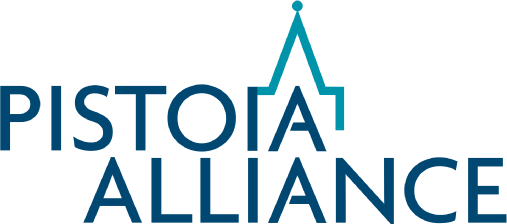Munich, April 4, 2016 – The Pistoia Alliance, a global alliance of life science companies, vendors, publishers, and academic groups and quattro research GmbH are pleased to announce the release of a major new extension to the HELM notation standard and toolkit. The new functionality enables HELM to support the representation of biomolecules with some structural uncertainty or ambiguity.
As the therapeutic utilization of complex and non-standard biomolecules has become commonplace in drug discovery R&D, scientists have struggled to represent these entities in their information systems, forcing them to use very non-standard “pick and mix” approaches that include multiple nomenclatures and textual descriptions. HELM, the open biomolecular representation standard, has solved this problem by providing a means to represent multiple types of complex macromolecules (e.g. nucleotides, proteins, antibodies and antibody-drug conjugates) including those that contain non-natural elements such as chemically modified amino acids.
The Pistoia Alliance formalized the HELM notation, originally created by Pfizer scientists, as an open standard in early 2013 and publicly released the related software toolkit and editor to the Open Source community. Since its release, HELM has benefited from a growing ecosystem of global adopters and contributors that includes organizations such as ACD Labs, Arxspan, Biomax, Biovia, BMS, ChemAxon, EMBL-EBI, eMolecules, GSK, Ionis, Merck, NextMove, Novartis, Pfizer, quattro research, Roche, and Scilligence.
While the original HELM solved the problem of representing unnatural complex biomolecules, it held the basic assumption that a scientist would know everything about the structures being represented. In biology, however, this is not always the case, as a various types of ambiguity or uncertainty may exist in some of these structures. A typical example is when the exact conjugation site of an antibody-drug conjugate cannot be determined. This left scientists with a difficult choice: either record a best guess of what the structure is, or simply describe the structure textually instead of structurally, creating a gap in their corporate structural registries. HELM 2.0 enables scientists to incorporate into their structural representation a systematic description of a number of forms of ambiguity, thus allowing for the rigorous representation of structures, even when uncertainty is present.
In addition to the representation of ambiguity, the HELM 2.0 toolkit provides a couple of additional enhancements that will make it easier for companies to integrate HELM into their infrastructure:
- An API that allows the toolkit to leverage different cheminformatics software libraries
- A set of web services that abstract the toolkit functionality from the toolkit code to facilitate calls to and from other software
“HELM had already significantly improved researchers’ ability to rigorously represent complex macromolecules. However, there was still a gap when it came to dealing with the very real-world scenario of structural uncertainty or ambiguity. Through this partnership with quattro research, we have implemented a pragmatic solution to this problem that further enhances the capabilities and applicability of the standard,” said Sergio Rotstein, Director of Research Business Technology at Pfizer and Domain Lead for the Pistoia Alliance HELM initiative.
Markus Weisser, Managing Director at quattro research GmbH adds: “HELM is designed as an open source project. Hence, in addition to ambiguity support, it was important that we remove third party dependencies and provide a more service-oriented architecture. This lowers the barriers to utilizing HELM and contributing to its development, and will enable more individuals and organizations to join the HELM community. Over the past two years, quattro research has become a leading expert in HELM and its extensions. Previously we helped to develop the Exchangeable HELM (xHELM) extension and contributed to the development of the HELM Antibody Editor. We are very proud to have built on this work in the development of HELM 2.0.”
About quattro research GmbH:
quattro research GmbH is a software and service company located in Munich, Germany. quattro research offers services and products for data management in the pharmaceutical, chemical, and biotech industry. The primary focus of the company is the development of tools and services for compound registration and analysis of biological data. Within several projects, quattro research developed extensive knowledge in the management and registration of biologics, e.g. antibodies and peptides. For further information see www.quattro-research.com or email weisser@quattro-research.com.
